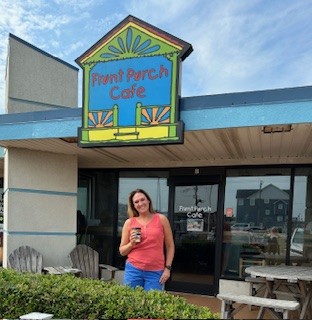Alright – so today we’ve got the honor of introducing you to Laura Wayland. We think you’ll enjoy our conversation, we’ve shared it below.
Alright, Laura thanks for taking the time to share your stories and insights with us today. What do you think Corporate America gets wrong in your industry? Any stories or anecdotes that illustrate why this matters?
Corporate America often misses the heart of what we do. They see coffee, wine, or olive oil as products to move quickly, but we see them as vehicles for connection. Our success is rooted in three pillars—community, employee experience, and customer experience and those can’t be faked or mass produced.
The big brands try to emulate the “local, community vibe,” but they miss the mark because their culture isn’t built around valuing people. Employees are treated as interchangeable parts. Customers become numbers. Decisions are made in the name of speed and profit, and the personal connection is lost.
We’ve seen firsthand what real community looks like. One morning, an employee who is one of the most reliable people we know didn’t show up to open the store on time due to a rare scheduling mistake. Within minutes, we started getting panicked calls from regular customers. Word spread so fast that almost every employee showed up to help get the store open as quickly as possible. Even customers jumped in to help, not just because they wanted their coffee fix, but because they were genuinely worried about the well being of our employee, assuming something bad must have happened. Thankfully, it was just an honest mistake and all was fine, but it showed the incredible love and loyalty our community has, both for the store and for our team.
We aren’t just selling coffee, wine, or olive oil we’re selling an experience. When employees feel valued and connected, they naturally create a space where customers feel cared for too. Corporate America often forgets that people don’t just want fast service; they want to belong.
Awesome – so before we get into the rest of our questions, can you briefly introduce yourself to our readers.
I’m Laura Wayland, a lifelong entrepreneur who believes business should be built on heart, community, and creating memorable experiences. My journey started during the 2010 recession and we took out an SBA loan, cleaned out our 401K that didn’t have much in it in the first place to open my first business. Six months later, my husband was laid off his full time job. We didn’t have the money for childcare, so my kids got off the school bus at the store, and we made it work, painting walls ourselves, repurposing shelves, and working 80-hour weeks. What began as one small shop has now grown into multiple successful businesses and 9 stores, including Front Porch Cafe, Outer Banks Olive Oil, Key West Olive Oil & Gourmet, and Chips Wine and Beer, with a team of over 75 incredible employees.
We don’t just sell coffee, wine, or olive oil, we sell an experience. When you visit one of our stores, I want you to feel like you’ve just walked into a warm, welcoming space where someone genuinely cares about your day. Our products are small-batch, locally roasted coffee, premium wines, craft beers, and gourmet olive oils, are all chosen with quality and authenticity in mind, but what really sets us apart is the culture. We focus on three pillars: community, employee experience, and customer experience. We believe that when employees feel valued, respected, and empowered, that energy is passed on to every customer who walks through our doors.
What I’m most proud of, though, is the leader I’ve become. Over the years, I’ve grown into the kind of boss I always wanted to have, one who listens, values her team, and creates a culture where people feel safe, supported, and appreciated. Leadership didn’t come naturally to me at first. I couldn’t even fire anyone. I was terrified to have difficult conversations, but building these businesses taught me to lead with heart, to trust my team, and to put people over profits. That’s the real legacy I hope to leave behind.
What I want potential customers and fans to know is this: our stores are built on passion, grit, and love for people. Success doesn’t come easy. We’ve been through hard times, maxed out credit cards, almost losing our home, and working with no safety net but we built something real and lasting because we never lost sight of why we do this. It’s about creating a place where people feel seen, connected, and cared for, whether they’re coming in for their favorite latte, a bottle of wine for dinner, or the perfect olive oil for their kitchen.
Can you share a story from your journey that illustrates your resilience?
When we opened our first store, people thought it was a crazy idea. We had just taken out an SBA loan during one of the toughest economic times, and six months later, my husband lost his job. We were terrified but refused to give up. Instead of stepping back, we doubled down, taking out another SBA loan and opening a second location. For a year and a half, I was the only employee, working seven days a week until I could finally afford to hire someone to cover just a half day on Sundays.
We did all of our own buildouts, spending as little as possible, and our kids grew up in the business, painting walls, getting off the bus at the store, doing their homework in the back until close, and spending weekends there with us. We ran up credit card debt and had constant worry about paying our mortgage , and many times I didn’t cash my own paycheck stretching it out a few weeks, piling them in my wallet uncashed. This struggle taught me alot and how to make every penny count in my business.
Can you open up about how you funded your business?
When we first decided to open our business, we cleaned out our 401(k). At 30 years old, it didn’t have much, about $25,000, but every dollar counted. That, combined with a $350,000 SBA loan, helped us open our very first store. Since then, we’ve grown by reinvesting profits, securing bank loans, and yes, sometimes facing rejection. We’ve been told “no” by banks more times than I can count.
When we went to the bank to apply for that SBA loan, they recommended we talk to SCORE since we had never owned a business before. Although I had experience in the wine industry, I was then a stay-at-home mom working for an in-home wine tasting party company that closed. The bank asked us for a detailed business plan and five year financial projections. We spent an entire month pulling everything together, creating a PowerPoint presentation, and preparing to meet with the bankers.
Back in 2010, this particular bank had never done an SBA loan before we approached them with the idea. Banks weren’t lending much during the recession, so this seemed like our only option. They loved our proposal. The next step was getting SBA approval, which we successfully secured. After our loan, the bank actually developed a whole SBA department to start doing loans all over the area.
After that, we opened other stores through a combination of personal investments, bank loans, and sometimes just sheer perseverance when banks said no. For example, when one bank declined us for our first olive oil store, we didn’t give up. We opened it with only $30,000, doing all the work ourselves. We got a quote of $20,000 for custom shelving but instead repurposed shelving meant for T-shirts from a department store for just $1,500. We still use those shelves todayand now when we do custom shelving, we design it ourselves for a fraction of that cost.
This journey taught us to be resourceful, resilient, and creative, traits that continue to shape every step of our business growth.
Contact Info:
- Website: www.frontporchcafe.com; www.outerbanksolive.com; www.chipswinemarket.com; www.keywestolive.com
- Instagram: https://www.instagram.com/frontporchobx/
- Facebook: https://www.facebook.com/frontporchcafeobx/
- Linkedin: https://www.linkedin.com/in/laura-wayland-5b26675b/
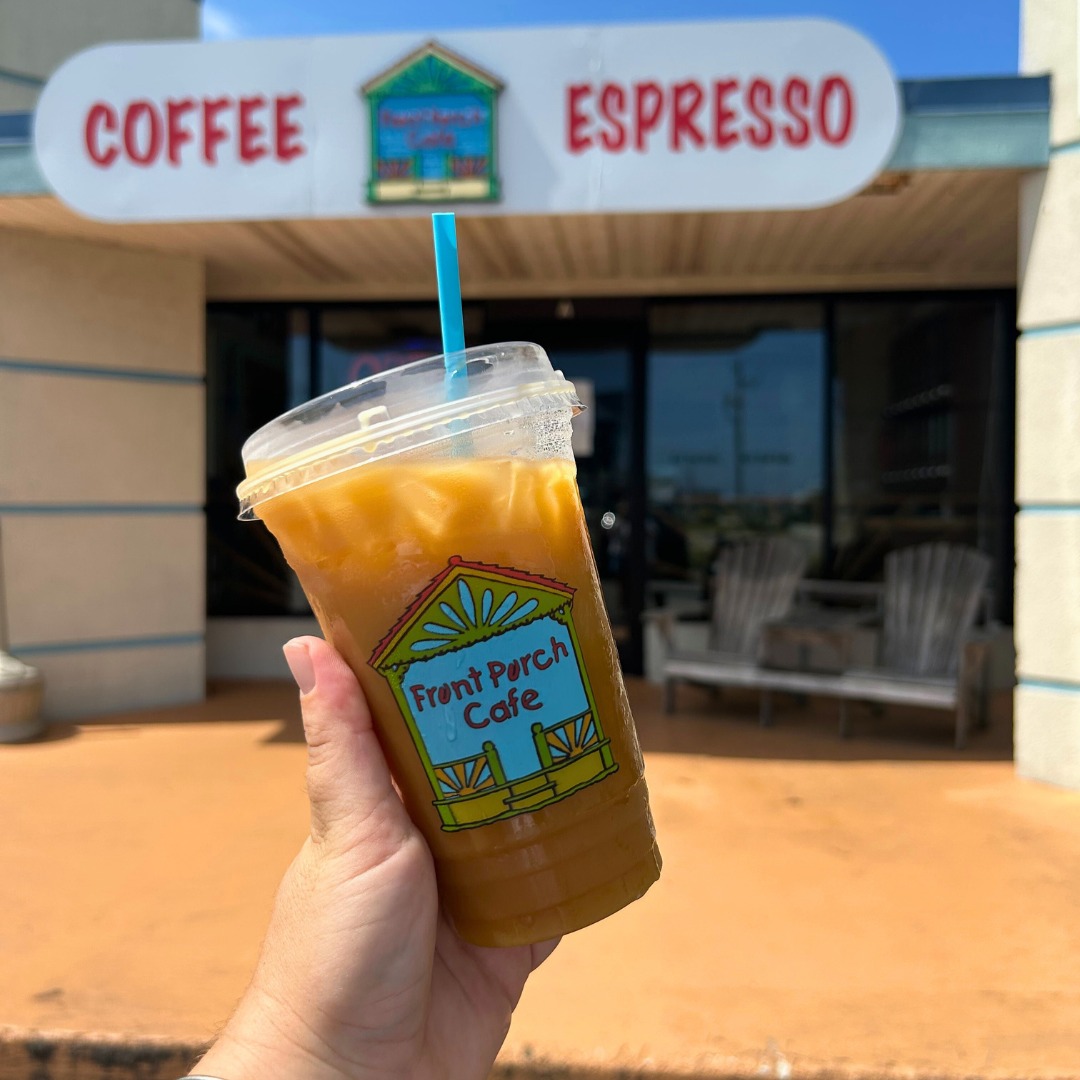
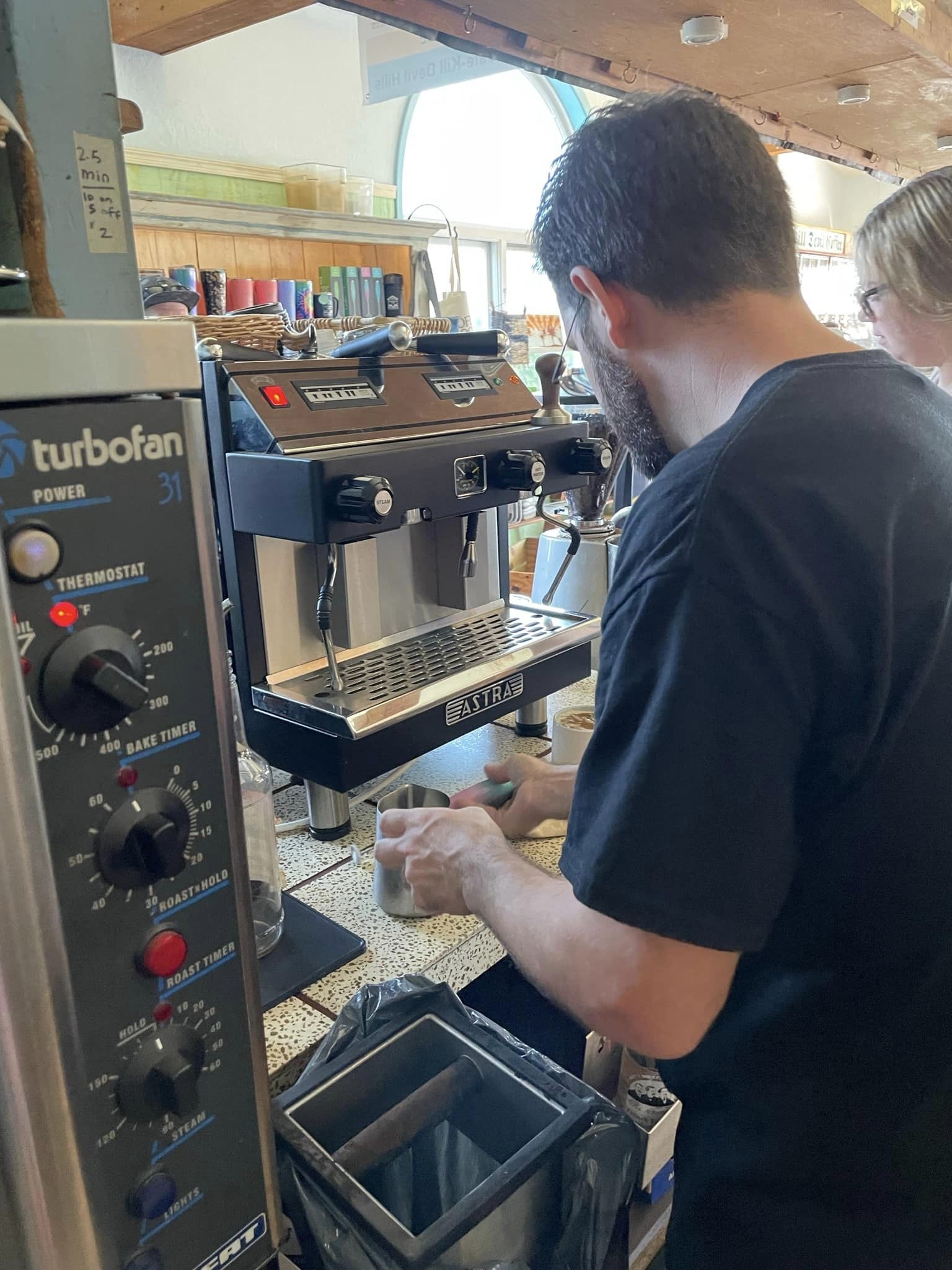
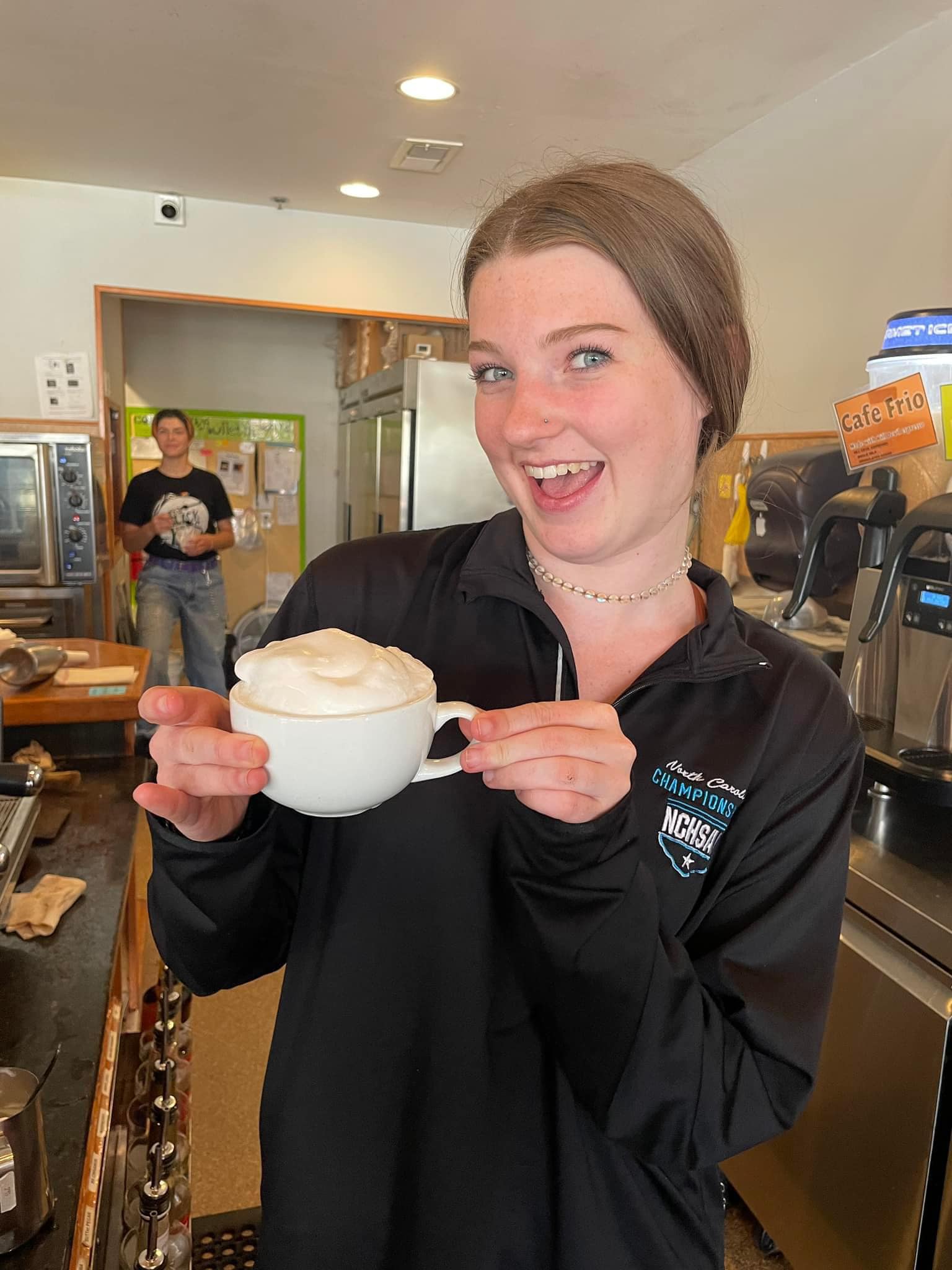

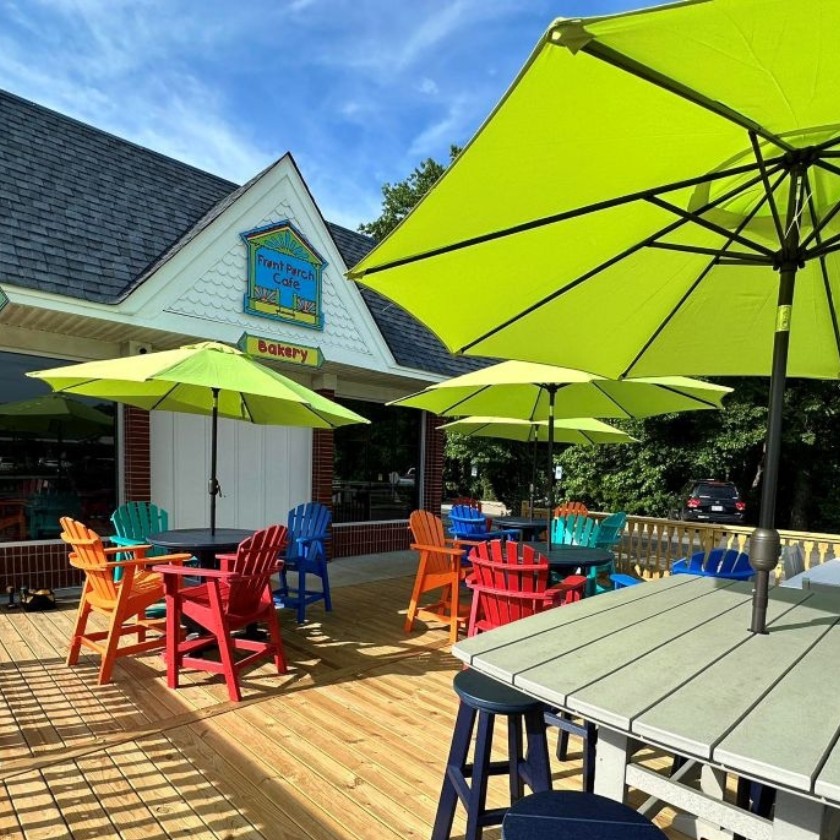
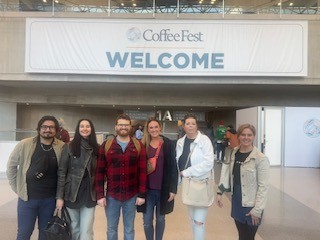
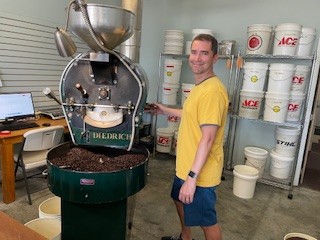
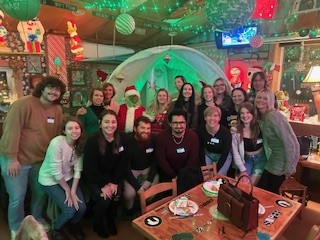
Image Credits
Front Porch Cafe


